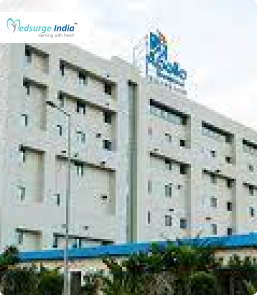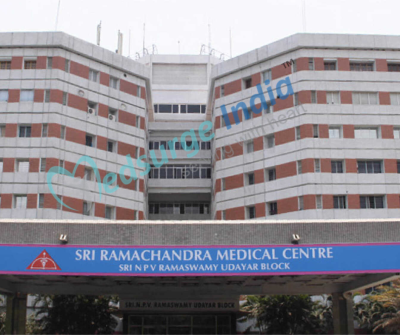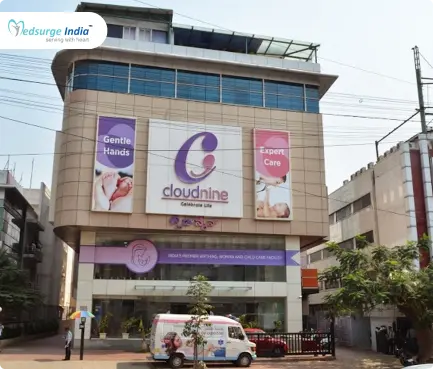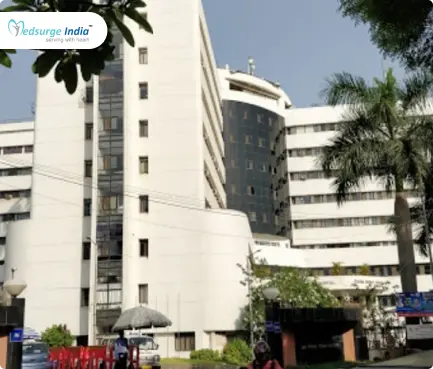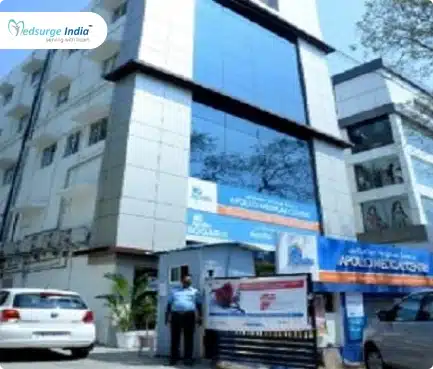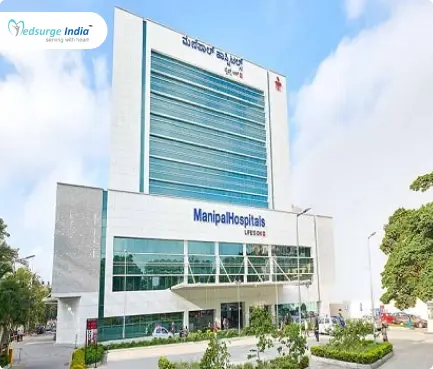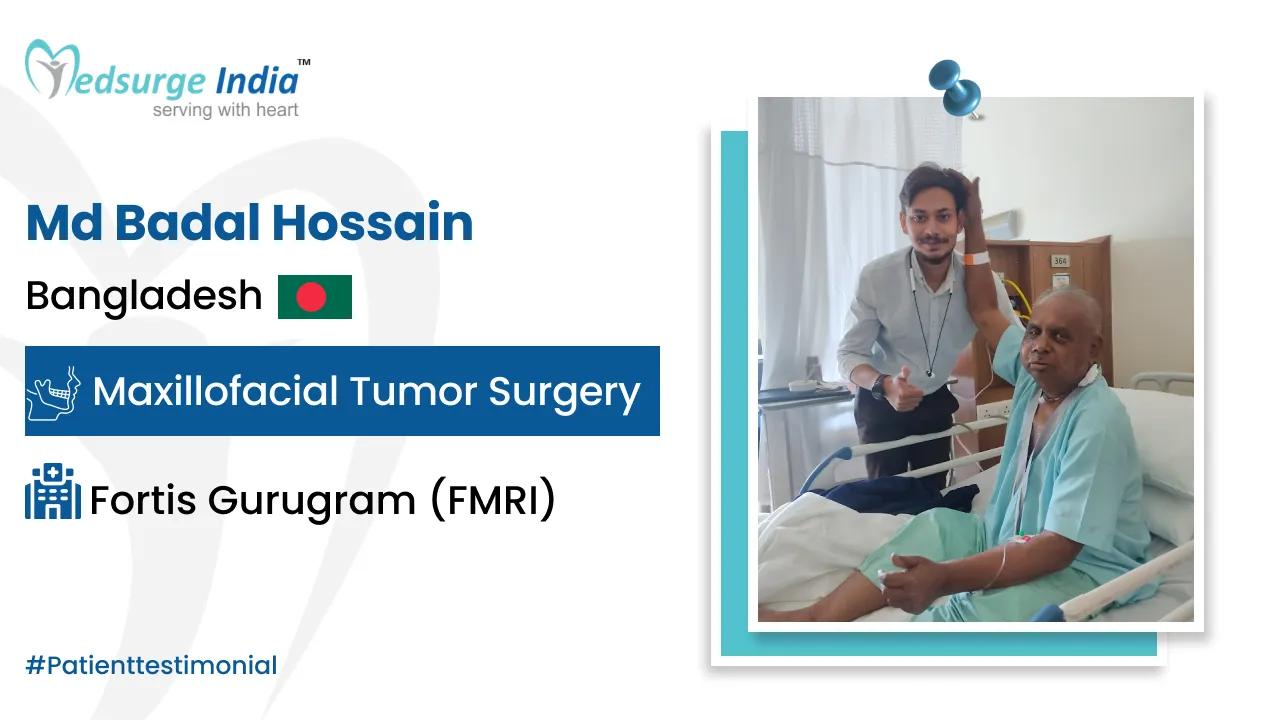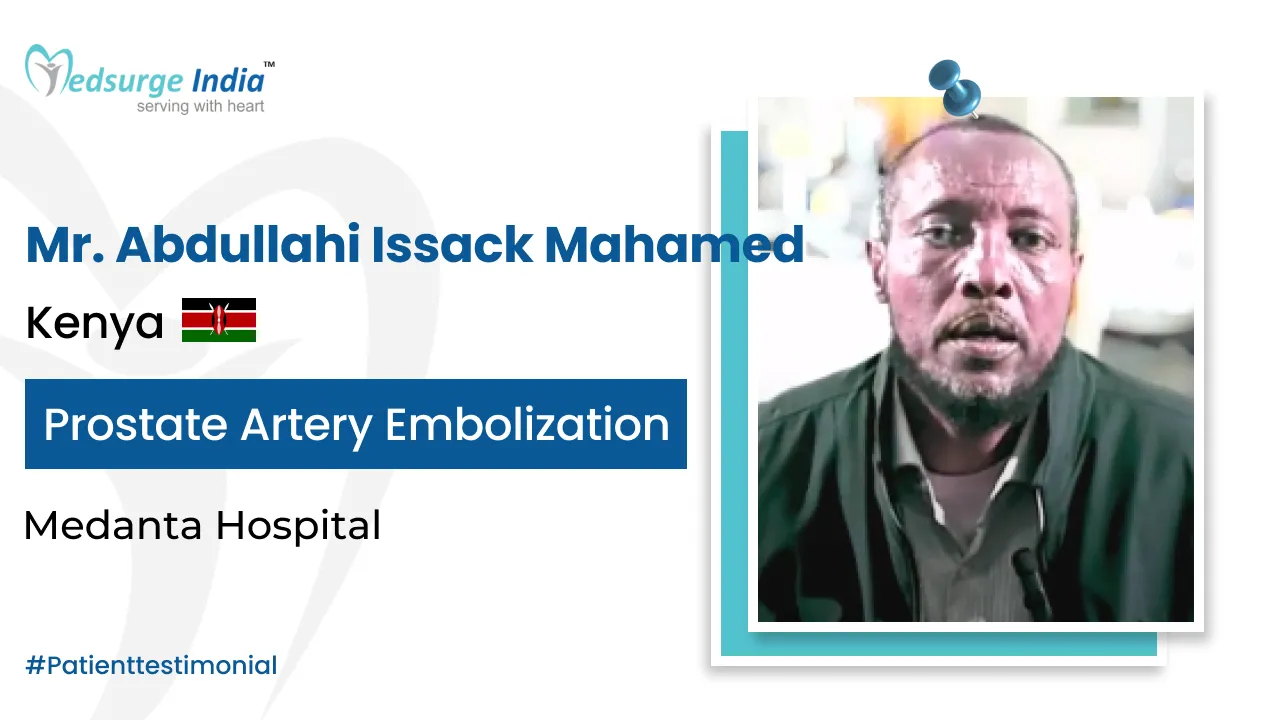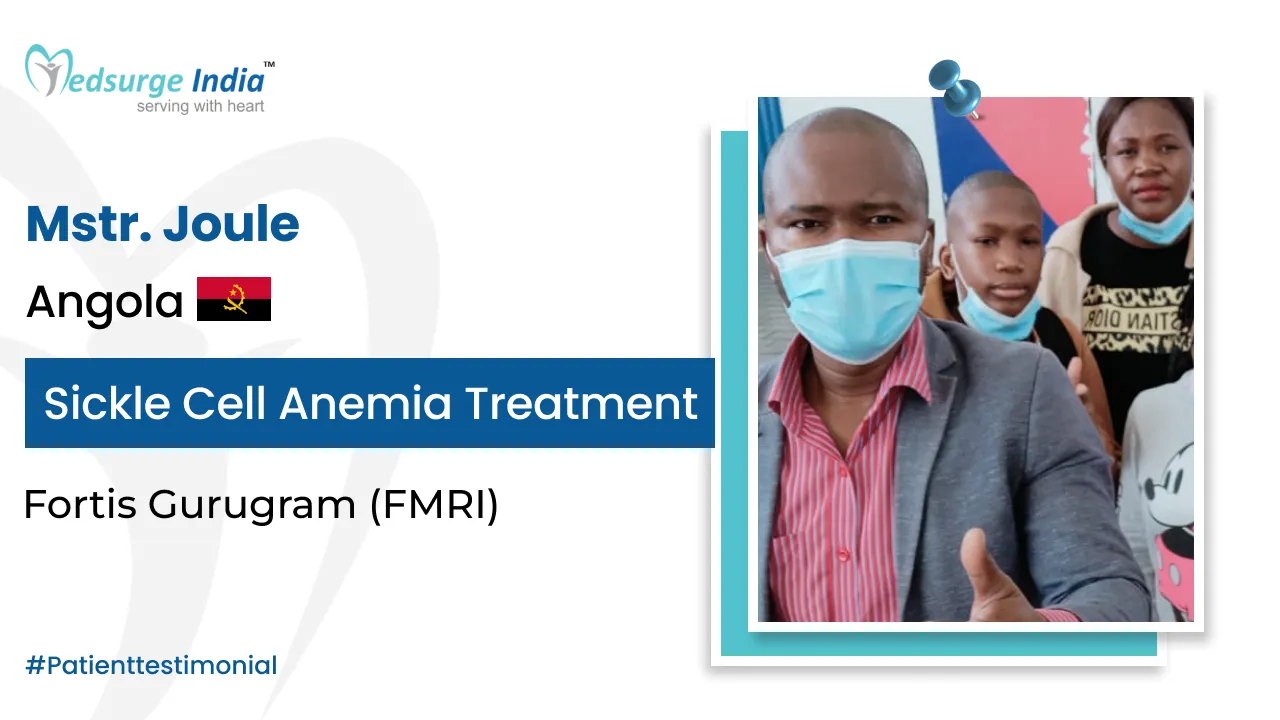
Pancreas Transplant in India
A pancreas transplant involves replacing a diseased pancreas with a healthier one from a living or deceased donor. It is used to achieve total independence from injectable insulins in patients with type 1 diabetes. Patients with type 2 diabetes have recently been getting this procedure. The pancreas’ function is to restore the body’s normal blood glucose levels by releasing insulin directly into the bloodstream. The pancreas cannot produce insulin to control blood sugar levels in severely affected diabetic patients or those with pancreatic failure. Pancreas transplant in India is only done in a few malignant situations.
Pancreas Transplant Cost in India is often a fraction of what it costs in the United States and other developed countries for the same procedure and care. The country is renowned for providing high-quality, reasonably priced healthcare. For patients traveling for Pancreas Transplant in India, the best facilities are available with inexpensive healthcare packages, top-notch medical equipment, and the assurance of excellent medical staff.
What is Pancreas?
The pancreas is a gastrointestinal organ that is found in the abdomen. It is responsible for transforming the food we ingest into energy for our body cells. The exocrine digesting and endocrine blood sugar management are the pancreas’ two main jobs.
The pancreas is located on the upper left abdomen, behind the stomach. Other organs such as the small intestine, liver, and spleen surround it. It’s spongy, roughly six to ten inches long, and shaped like a flat pear or a fish with a horizontally stretched tail.
The head of the pancreas, which is the wide section, is positioned toward the center of the abdomen. At the point where the stomach meets the first part of the small intestine, the pancreas’ head is found. The pancreas releases digestion enzymes into these contents after the stomach empties partially digested food into the intestine.
The pancreas’ primary purpose is to create insulin, a hormone that keeps our blood glucose levels in control.
The pancreas ceases producing enough amount of insulin hormone in certain diseases, such as Diabetes. As a result, the cell’s glucose intake regulation mechanism is disrupted. Pancreas Transplant in India is one of the treatment options in this situation.
What Do You Mean by the Term Pancreas Transplant
A pancreas transplant in India is a surgical procedure that involves the replacement of a non-functioning pancreas with a healthy pancreas from a deceased donor.
The human pancreas is in charge of secreting the hormone insulin, which regulates and maintains the levels of sugar (glucose) in our cells. When the pancreas does not produce enough insulin, blood sugar levels rise too quickly, which is unhealthy. This leads to Type 1 Diabetes, which is one of the most common conditions that can be corrected with a pancreas transplant.
Pancreas transplants in India have a very high success rate. After a successful pancreas transplant, 95 % had a one-year improvement in life expectancy, and 88% had a five-year increase in life expectancy.
Who is Eligible For Pancreas Transplant
For individuals with severe Type 1 Diabetes problems, a pancreas transplant is frequently the last option. If the traditional treatments have a good chance of working, the doctor will usually not recommend a pancreatic transplant. It’s because pancreatic transplants have a lot of possible negative effects. Other medical issues that may necessitate a pancreatic transplant include:
- Pancreas transplant for diabetes: Type 1 diabetes that is resistant to conventional therapy
- Insulin reactivity
- Consistently low blood sugar levels
- Pancreas transplant for cancer: Kidney disease or injury that is severe
- Low insulin resistance and low insulin production are both linked to type 2 diabetes.
Pancreas Transplant Cost in India
On average Pancreas Transplant Cost in India starts from USD 31000. For Pancreas Transplant in India, the expenses are subject to variation based on the patient’s condition and the specific treatment approach chosen by the doctor following the results obtained.
As there are a number of variables that affect Pancreas Transplant Cost in India, this includes the type of treatment, the method employed, as well as the hospital and location of choice, the doctor’s qualifications, and so on. For this reason alone, many people come from all over the world for medical care in India for a variety of reasons, such as Pancreas Transplant Cost in India is much lower compared to other countries which is by far the most important.
Pancreas Transplant Cost in Various Cities in India
| Cities | Starting Price |
| Delhi | USD 31000 |
| Gurgaon | USD 31000 |
| Noida | USD 31000 |
| Mumbai | USD 31500 |
| Hyderabad | USD 31000 |
| Chennai | USD 31000 |
| Kolkata | USD 31000 |
| Bangalore | USD 31800 |
Please note that the pricing and the treatment for Pancreas Transplant cost in India will vary depending on the patient’s choice and other various factors.
Factors That Can Affect Pancreas Transplant Cost in India
The following here are some variables that can affect Pancreas Transplant Cost in India:
- Medication costs.
- Duration of treatment.
- Geographical location.
- Hospitalization expenses.
- Government policies and subsidies.
- Medical tourism packages.
- Hospital reputation and infrastructure.
- The expertise and experience of medical professionals.
- The type and frequency of diagnostic procedures.
- The choice of treatment modality.
Furthermore, the standard and caliber of medical services and amenities provided are comparable to esteemed healthcare establishments globally, despite taking into account expenses for lodging, food, and travel. Additionally, with the expertise of skilled physicians, Medsurge India guarantees that individuals are provided with the most cost-effective Pancreas Transplant cost in India.
Get Free Cost Estimation
Procedure
How Pancreas Transplant Procedure Is Performed
Before the Transplantation
- Finding a donor is the first step in getting a pancreas transplant in India. International patients are not permitted to undergo cadaveric transplantation in India. Living donor transplantation via a twin or close relative who is a good HLA match is the only alternative left for the patient.
- The patient will not receive the complete pancreas in this type of transplant, but rather a portion of it that can perform at least some tasks.
- If the patient discovers a good match for pancreas transplantation, the pre-transplant tests can begin.
- Type of diagnostic and screening tests required:
- HLA/Tissue Typing
- Blood Tests
- MRI/ CT Scan/ PET Scan
- Echocardiogram
- Medical History and psychological Evaluation
During the Transplantation
- The surgery to transplant the pancreas is done under general anesthesia and can take anywhere from 3 to 6 hours, depending on the kind of transplant.
- The patient will get all liquid drugs through an IV (intravenous) line in the arm.
- A deep incision will be made in the center of your abdomen by the surgeon. Following that, a portion of a donor’s pancreas (together with a part of the small intestine) will be implanted in the recipient’s lower abdomen.
- The blood veins delivering blood to the legs and the recipient’s small intestine will be connected to the donor pancreas and small intestine, respectively.
- The pancreas of the receiver remains in place and continues to perform whatever minimal functions it can.
- Finally, the surgeon will use stitches to close the incisions. After the surgery, the patient will be sent to a designated recovery room.
After the Transplantation
- Once the patient’s condition has stabilized, they will be transferred to an intensive care unit (ICU), where they will be monitored closely for any potential risks or consequences.
- A few tests will be performed after the transplant to ensure that the important organs are working properly.
- Anti-rejection medications will be given to the patient on a regular basis to prevent acute immunological rejection.
- The patient will be transferred to a regular ward after a day or two in the ICU when the initial recuperation will begin.
- Once the doctor determines that the patient’s condition has been sufficiently stabilized, the patient will be discharged from the hospital.
The newly transplanted pancreas begins to generate insulin and performs its function. Immune rejection is still a possibility even after a successful transplant with a full-crossmatch donor. After the transplant, the patient may undergo acute or chronic rejection.
For better results, a patient will be expected to follow the post-operative guidelines and make certain lifestyle adjustments, such as:
- Maintain a balanced diet
- Avoid consuming alcoholic beverages
- Smoking should be avoided
- Keep a healthy weight
- Maintain good hygiene
Best Gastroenterologist in India
- Dr. Avnish Seth
- Dr. Arvind Khurana
- Dr. Debasish Banerjee
- Dr. Abhijit Thakur
- Dr. Sanjay Nagral
- Dr. Nilesh Doctor
- Dr. Pankaj Dhawan
How to Choose a Hospital For Pancreas Transplant In India?
Hospitals that perform Pancreas Transplant in India are well-known for their hospitality and patient care services providing the finest cancer hospital and oncologists and surgeons in India. However, choosing a suitable hospital for treatment can be difficult for an international patient. It is a significant decision that must be made with several factors in mind, including:
- Quality certificates and accreditations
- Hospital and transportation facility location
- Team of doctors and surgeons
- Advanced diagnostic and therapeutic equipment
- International patient assistance
Best Hospitals for Pancreas Transplant in India
- Indraprastha Apollo Hospital New Delhi
- Fortis Hospital Gurgaon
- Amrita Hospital, Faridabad
- Apollo Hospitals, Greams Road, Chennai
- Manipal Hospital Dwarka, Delhi
- Artemis Hospital Gurgaon
- Fortis Hospital Noida
- Global Hospital Mumbai
- Amrita Hospital, Kochi
- MGM Healthcare, Chennai
Why Do Individuals Prefer to Have Pancreas Transplant in India?
Certainly, India is a popular destination for those seeking pancreas transplants and medical procedures. Pancreas Transplant cost in India is typically a fraction of the cost of a comparable procedure and consideration in the United States and other developed countries. In any case, the cost may vary depending on the type of medical procedure, the use of inserts, and the patient’s other conditions. As a result, the final charges for Pancreas Transplant cost in India given to patients are entirely based on their clinical reports, as well as the patient’s current condition, type of medical procedure, type of room, the specialist’s skill, and hospital brand.
The best hospitals for Pancreas Transplant in India provide comprehensive appropriate treatment, including comprehensive pre-operative evaluations, minimally invasive surgical options, and post-operative rehabilitation programs. Patients can expect personalized treatment, individualized attention, and compassionate care at these medical facilities. As one of the leading hospitals in the country, all of the facilities have been accredited by top international organizations like the National Accreditation Board for Hospitals and Healthcare Providers (NABH) or Joint Commission International (JCI).
How Can Medsurge India Help?
Medsurge India is a prestigious support system for patients looking for doctors, hospitals, and specialized treatments. Our staff will provide you with a list of licensed, renowned, and trustworthy physicians and medical facilities in relation to your medical needs. We also provide our patients with a treatment plan that fits within their budget. Apart, we assist patients with obtaining travel authorizations, medical visas, and a multitude of other things.
The Most Important Frequently Asked Questions
Q: How Long Does a Pancreas Last After a Transplant?
A: After a pancreas transplant, the prognosis is good.
After a pancreas transplant, most people live for years, if not decades. Almost everyone will live for at least a year following, and about nine out of ten will live for at least five years.
Q: How Long Does It Usually Take to Get a Pancreas Transplant?
A: The time it takes for a suitable donor — one whose blood and tissue types match yours — to become available is determined by your blood group and how long it takes for one to become accessible. A pancreatic transplant takes about 23 months on average. A combined kidney-pancreas transplant takes about 13 months on average.
Q: What Happens If a Pancreas Transplant Fails?
A: If a pancreas transplant fails, the patient will have to resume insulin injections and close blood glucose monitoring to manage their diabetes.
Q: Who Qualifies for a Pancreas Transplant?
A: Candidates for pancreas transplantation commonly have type 1 diabetes, as well as kidney disease, nerve damage, vision issues, or another disorder consequence. When a person’s diabetes is uncontrollable despite medical treatment, healthcare experts usually contemplate a transplant.
Q: Can the Pancreas Be Cured?
A: Chronic pancreatitis has no cure, but the pain and symptoms it causes can be managed or even avoided. Abstinence from alcohol is a common strategy to relieve the discomfort of chronic pancreatitis, which is most typically caused by drinking.
Top Hospitals for Pancreas Transplant in India
Top Doctors for Gastroenterology
Dr. Satheesh Rao A K
Senior Consultant
Experience: 23+ years of experience
Narayana Multispeciality Hospital, R S Naidu Nagar, Mysore
Mysore, India
Dr. Satya Gopal Maity
Consultant
Experience: 41 years of experience
Ruby General Hospital, Kolkata
Kolkata, India
Dr. Gaurav Mehta
Consultant
Experience: 10 years of experience
Kokilaben Dhirubhai Ambani Hospital
Mumbai, India
Dr. Amit Gupte
Consultant
Experience: 14 years of experience
Sir HN Reliance Foundation Hospital
Mumbai, India
Dr. Prabhu Doss
Consultant
Experience: 15 years of experience
Apollo Spectra Hospital, Chennai
Chennai, India
Dr. Dilip Todi
Consultant
Experience: 20 years of experience
AMRI Hospital, Kolkata (Dhakuria)
Kolkata, India
Dr. Amey Sonavane
Consultant
Experience: 10 years of experience
Medanta – The Medicity, Gurgaon
Mumbai, India
Dr. Shanthi Vijayaraghavan
Consultant
Experience: 35 years of experience
Apollo Specialty Hospital, OMR
Chennai, India
Dr. Amit Bhasin
Senior Consultant
Experience: 12 years of experience
Venkateshwar Hospital, New Delhi
New Delhi, India
Dr. Abhijit Bagul
Consultant
Experience: 21 years of experience
Fortis Hiranandani Hospital, Vashi
Mumbai, India
Dr. Dheeraj Karanth
Consultant
Experience: 14 years of experience
Manipal Hospital Millers Road formerly Vikram Hospital Bangalore
Bangalore, India
Dr. Ashwini Kudari
Senior Consultant
Experience: 23 years of experience
Manipal Hospital (Old Airport Road) Bangalore
Bangalore, India
Dr. Prasanna Kumar Reddy
Senior Consultant
Experience: 48 years of experience
Apollo Hospitals, Greams Road, Chennai
Chennai, India



